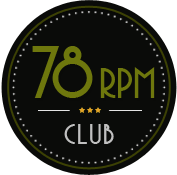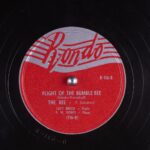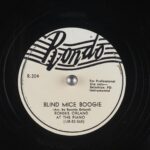Rondo
ca. 1948 - 1965
The label was started in Chicago in the late 1940s, with Julius F. Bard as President and Nick Lany as Executive. They were located at 329 S. Wood Street in Chicago initially, but by mid-1950 they had moved to 220 W. Locust Street in Chicago. By far their biggest claim to fame was the 1948 organ smash hit "You Can't Be True, Dear" by Ken Griffin.
Rondo released a variety of pop and classical music. They started issuing 10" albums in the early 1950s, some or all of which were issued on red vinyl. In 1955, the company was sold to Eli Oberstein, who also owned a series of labels under the umbrella corporation called "Record Corporation Of America." In 1954, the company moved to Union City, New Jersey. By 1958, Oberstein started a new companion label, Rondo-Lette, and later two subsidiaries, Acorn and Evon.
Eli Oberstein died on June 12, 1960, and his son, Maurice, took over operations. In late 1961, the label was sold to Precision Radiation Instruments, Incorporated (P.R.I. Records), located in Los Angeles. PRI, who ran many of the budget labels found in grocery store racks, placed the Rondo label under its Kimberly Record Corp. subsidiary in New York, beginning the third phase of Rondo's history. The third phase lasted a few years (Rondo was known to be reissuing albums at least as late as 1965), when Rondo was stopped issuing records.
Source: Discogs
Detailed informations on: bsnpubs.com



